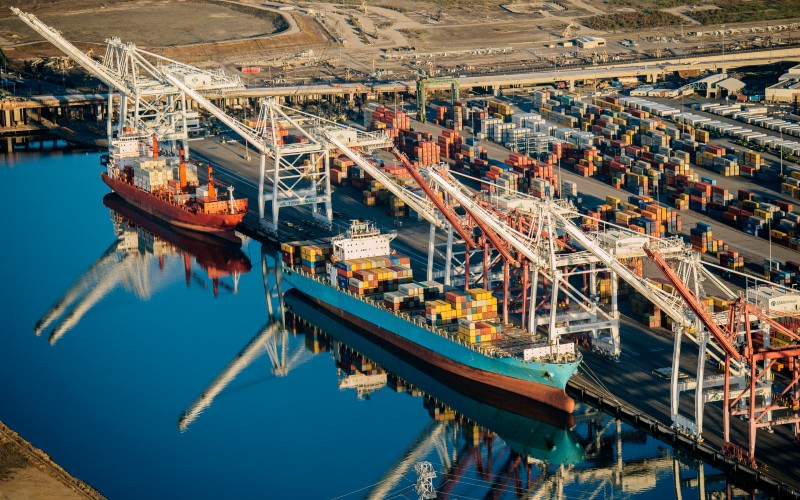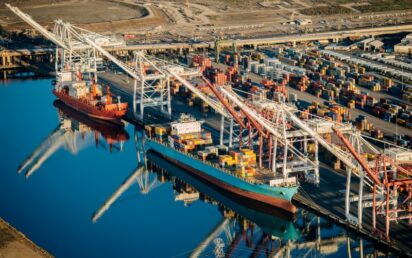For many UK businesses, the promise of the vast US market is undeniable. Yet, as goods cross the Atlantic, they enter a complex regulatory landscape.
Besides the initial freight cost, UK businesses shipping to the US must be fully aware of customs regulations. Non-compliance can lead to severe financial penalties, operational delays and damage to your brand.
The True Price of Non-Compliance
When your supply chain extends to the United States, every detail, from product classification to documentation, is scrutinised. Errors, omissions, or a lack of understanding of US customs regulations can trigger a cascade of unforeseen expenses.
Here’s what those hidden costs often look like:
• Customs Fines and Penalties: US Customs and Border Protection (CBP) enforces strict rules. Even seemingly minor errors in declarations, incorrect HS codes, or misvalued goods can result in substantial fines.
These penalties can range from a percentage of the undeclared duty to thousands of dollars per violation, escalating for repeat offenders or instances of gross negligence.
• Demurrage and Detention Charges:
-
- Demurrage applies when your imported container remains at the port or terminal beyond the allotted “free time” for unloading. This is a daily charge levied by the shipping line.
- Detention occurs if you hold onto the empty container outside the port beyond its free time before returning it. Both charges can quickly accumulate, turning a brief delay into a considerable expense, especially if you’re dealing with multiple containers.
• Re-export Costs and Lost Sales: Imagine your goods arrive in the US, only to run into trade compliance issues. In some cases, they might be refused entry, forcing you to re-export them back to the UK and the ultimate loss of the intended sale.
• Storage and Warehousing Fees: Delays due to customs compliance issues can cause you to have to book unexpected storage to keep your goods safe. If your goods are held up due to incomplete documentation or a customs inspection, you’ll likely incur charges for warehousing until the issue is resolved.
• Administrative Burden and Human Resources: Rectifying compliance issues can take a lot of effort and resources. Your team will spend valuable time liaising with customs brokerage firms, CBP officials, and logistics partners, diverting them from core business activities. This administrative overhead is a tangible, yet often untracked, cost.
• Damage to Reputation and Customer Relationships: Beyond the direct financial impact, persistent customs issues can harm your reputation as a reliable supplier. Missed delivery deadlines and frustrated customers can lead to lost business and long-term damage to your brand.
Proactive Compliance: An Investment, Not an Expense
The alternative to reacting to these hidden costs is a proactive approach to customs compliance. This will allow you to avoid penalties, streamline your operations, improve your supply chain efficiency, and protect your profit margins.
Consider these benefits of robust compliance:
• Reduced Delays: Accurate documentation and proper classification ensure smoother passage through customs, drastically reducing the likelihood of holds and inspections.
• Cost Savings: By avoiding fines, demurrage, and re-export costs, you protect your financial health. Efficient processes also cut down on administrative time and related expenses.
• Predictability: A strong compliance framework brings predictability to your supply chain operations, allowing for better planning and inventory management.
• Enhanced Reputation: Reliable delivery fosters trust with your US customers, strengthening your market position.
Automate Your Way to Seamless US Trade

Navigating US customs compliance doesn’t have to be a daunting manual exercise. In today’s digital age, technology offers powerful solutions to automate processes, minimise human error, and provide real-time visibility into your shipments.
For UK businesses looking to expand or optimise their trade with the United States, investing in dedicated customs software is a strategic decision. Such platforms are designed to:
• Automate the creation and submission of accurate customs declarations.
• Verify data against current US regulations to ensure trade compliance.
• Help correctly classify goods, avoiding common pitfalls with HS codes and customs duties.
• Provide dashboards for tracking shipment status and identifying potential issues before they become costly delays.
Don’t let compliance with US customs regulations erode your profits. Explore how CrimsonLogic North America customs software can help streamline your shipping to the US today.


